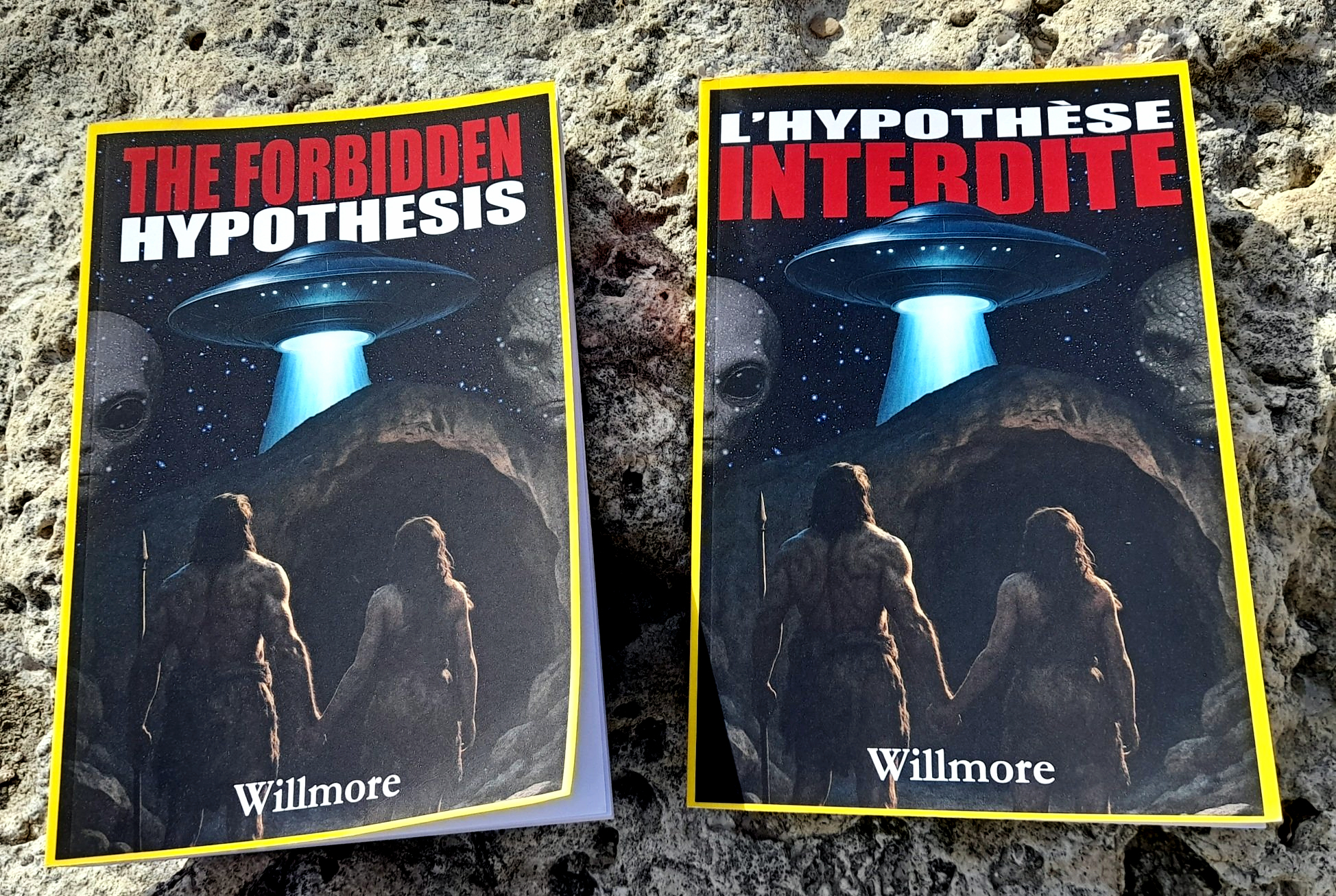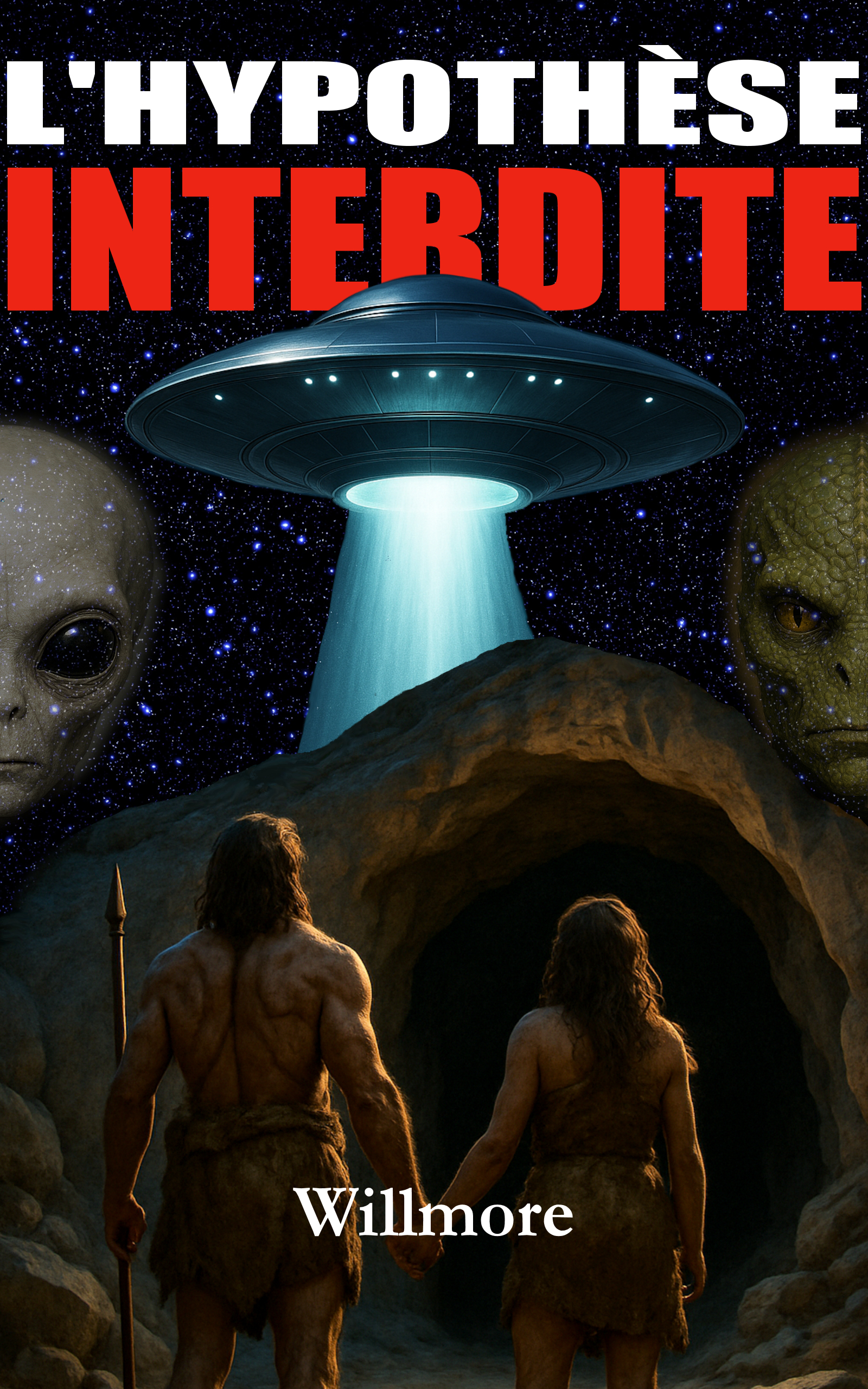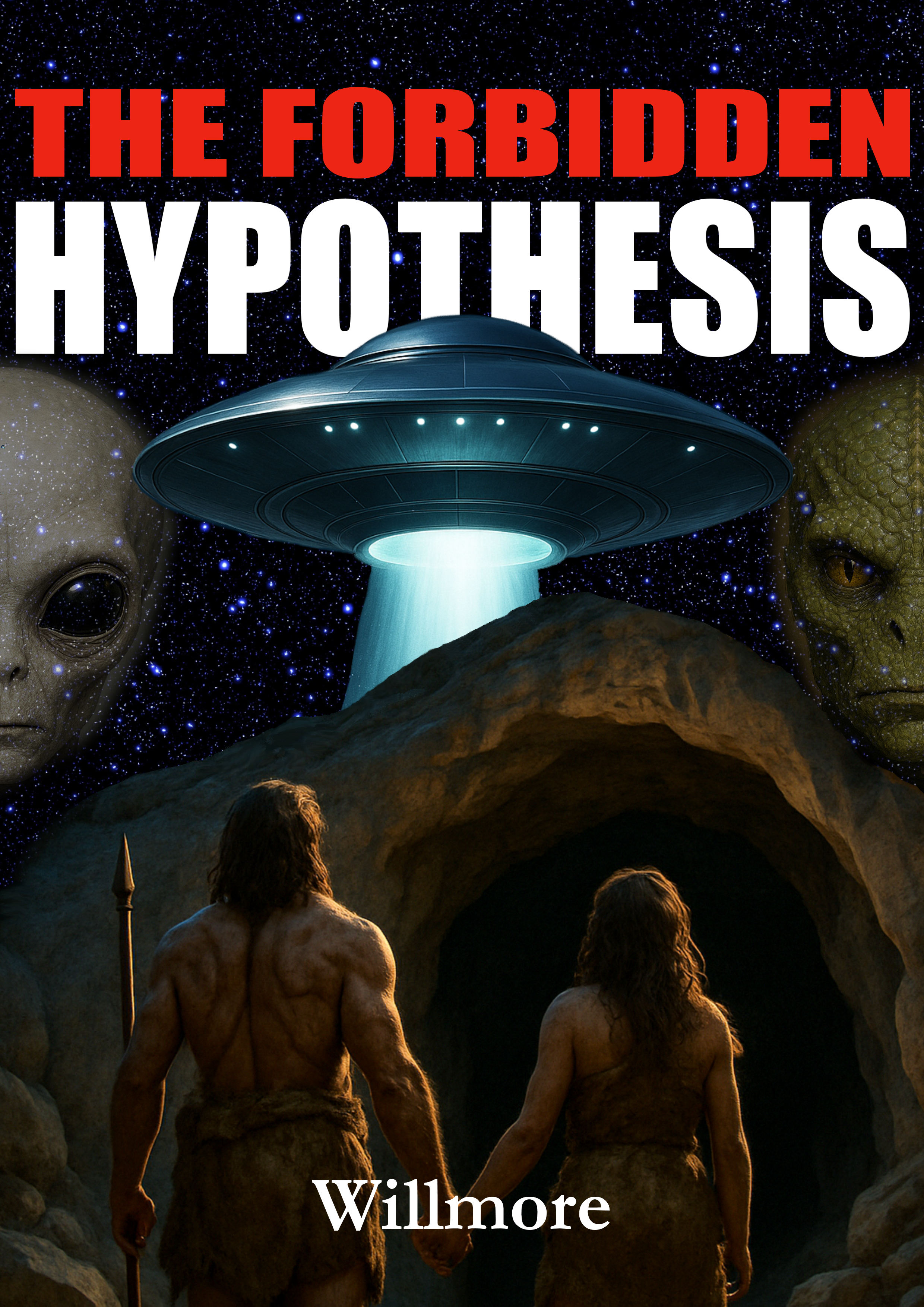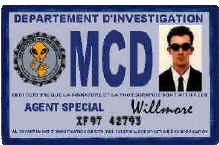The Forbidden Hypothesis:
A Fresh Look at UFOs

Drawing on 20 years of research and more than 290 sources, the book entitled The Forbidden Hypothesis offers an approach to UFOs from the perspective of alien abductions. Far from the sterile debates on UAPs, this bold investigation, which redefines the phenomenon, reconnects with visionary ufology, the kind that requires keeping an open mind and a sense of priorities to avoid missing the point, and the danger.
The UFO defies scientists because it does not submit to their protocols. Consequently, many of them have preferred to ridicule those who speak of it rather than admit their helplessness in the face of the phenomenon. However, the evidence is accumulating, and it will eventually summon science. The latter will be forced to admit that its hubris has wasted humanity's time, or even put it in danger. For the implications of this interference, alien to our understanding, do not only concern air navigation. The physical integrity of the abductees as well as our reproductive processes are directly impacted. And the consequences of these operations are ignored, or at least minimized.
Some governments are also interested in the subject, but their objectives are questioned when we see their incomplete approach and elusive conclusions. In the meantime, the testimonies and material evidence that emerge more often come from independent researchers, observers, and victims. These manifestations do not have positive intentions, judging by the way they maintain the vagueness of the nature of their project. The exchanges reported by contactees who have communicated with aliens (visually, not remotely) amount to a discourse that contradicts their actions. To thwart this manipulation, it is therefore urgent to put an end to more than 70 years of ufological procrastination, to speak only of the contemporary era. The lessons learned from close encounters are enough to convince us that it is preferable to mobilize around the objectives of the occupants of UFOs, rather than solely on the characteristics of the phenomenon.
The majority of serious ufologists focus on the nature of UFOs through the examination of physical and visual evidence. But this approach seems doomed to failure because our current level of scientific knowledge is inferior to the intelligence that conceived what we observe, judging by its capabilities. The originality of my study lies in the fact that it focuses on the aspirations of the occupants of these flying machines. This approach seems to me more urgent and more easily achievable by adopting an attitude equivalent to that which allows us to overcome the blockages that any scientific study can encounter, namely: "manipulating the same data package as before, but placing them in a new system of relationships with each other by giving them a different framework1 ".
The presence of UFOs is a constant in human history. However, examining them allows us to observe that the more developed humanity's technological capabilities are, the more the UFO takes on an appearance that reveals no details. So if we want to have a chance of unraveling the mystery, it seems logical to go back in time to a period when the UFO was less likely to hide its true nature. Similarly, we can assume that its occupants were more easily decipherable in terms of their motives. This is how I linked alien abductions to a symbolism that sheds light on them as much as it causes a reinterpretation of history, mythology, and archaeology. The sacrificial aspect of abductions and the entomological approach to their instigators give a new perspective to the visitors' project.
If I focused on alien abductions, it is also because these are certainly the manifestations that have the most to teach us since they are those that bring the observer (the latter being involuntary this time) closest to the subject of the study. Alien abductions are considered dangerous incongruities for the majority of ufologists who prefer to stick to flying objects, in order not to further undermine their level of credibility. Most have ignored this subject for reasons that only reproduce the bias of academic science: it is only possible to move forward with the validation of one's peers. And nature abhors a vacuum, serious ufology has abandoned the idea of contact and communication to a more religious and new age version, embodied in particular by CE5 and certain postmodern trends, with all the sectarian excesses that can follow.
For academic doctrine, it was, and still is, a matter of confirming what the community is convinced of, attributing anomalies to biases or natural explanations, and discrediting alternative arguments by assimilating them to simple speculation. Thus, among other things, from antediluvian paintings to stories considered mythical, the testimonies of the past have been interpreted according to a certain scientific conformism. Freed from the latter, only facts and logic remain to guide our thinking, and to perceive relationships hitherto hidden by orthodoxy. The search for new hypotheses, according to Thomas Kuhn, is "an effective way of weakening the intellectual hold of an old tradition and of suggesting the foundations of what will constitute a new one2." Studying what is missing once alien abductions have taken place gives us the opportunity to read a certain part of history differently. And this new understanding of the past in turn leads to a better illumination of our present, as well as the meaning of the current presence of our undesirables.
I have undertaken this approach over 400 pages and through 290 sources. The Forbidden Hypothesis is also the fruit of some twenty years of UFO research, which I present to you today in what also constitutes a warning about the danger of the project hidden behind these unwanted interventions. I am aware of the fact that I am going against a certain trend that tends to present extraterrestrials as ambassadors of peace and knowledge. But one only has to observe their actions and hear their communication as reported by abductees to realize that our perception of UFOs is partial and biased, or even that this approach is induced by the phenomenon to better hide its true purpose. Taking the risk of ignoring the peril will not protect us from it.

From a practical point of view, not being bilingual, I adapted The Forbidden Hypothesis by removing from the English version the overly French expressions that might pose a problem for an Anglo-American audience.

________________________
Article posted online on August 30, 2025 for the French version, September 21, 2025 for the English translation.
________________________
@willmore.frenzy
________________________
@conspiration.org
________________________
________________________
Si vous êtes en possession d'informations inédites
N'hésitez pas à me contacter
Moteur de recherche :
|
|||
| site search by freefind |


